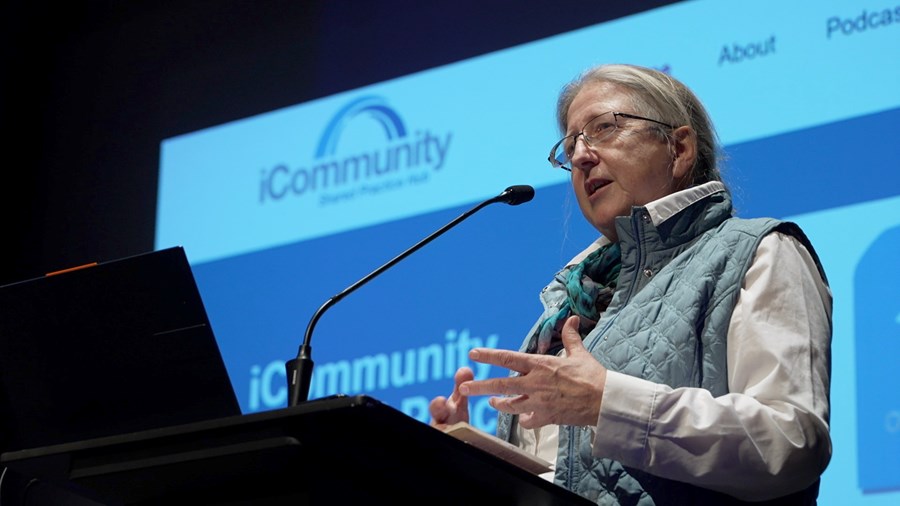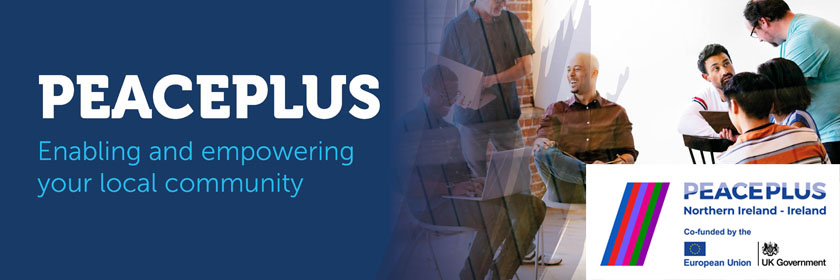All-island SDGs Symposium – Coalition 2030

The creation of Coalition 2030 followed on from Transforming Our World: the 2030 Agenda being agreed. A few people involved in Irish civil society from a variety of different sectors or pillars created it and from the beginning envisioned a cross-sectoral, cross-pillar initiative advocating for Ireland to reach its sustainable development goals.
Coalition 2030 was set up with two primary goals: one, to act as a strategic convener for civil society, and that’s why it’s structured in this four-pillar way with the environmental, domestic anti-poverty and inequality, international, and trade union pillars. More importantly, it was set up to act as a watchdog on the government’s progress on the Sustainable Development Goals.
There have been many successes since Coalition 2030 was established, but also many barriers and challenges. Meaghan shared some of the key challenges:
What we have found, is that it’s quite difficult to get horizontal integration across all government departments to work in practice because accountability is somewhat opaque. It’s great that there is an SDG unit in operation, but this is a small unit within the Department of the Environment, which makes it difficult for this small unit to hold other departments and units to account.
The second challenge is workload. We have a national implementation plan for the SDGs; we’re on our second one now. The majority of the actions in this plan are on the shoulders of that SDG unit, making it very, very difficult to actually get them all achieved. Another barrier or challenge is the level of public awareness of the sustainable development goals, with only five and a bit years to go until their culmination. There’s still an extremely low level of awareness in the public, and even those who we’d see as kind of global citizens, within that cohort, there are still very low levels of awareness. To date, there has been no comprehensive national public awareness communications plan led by the government.
In terms of successes, we have seen a number of our Oireachtas committees take the SDGs on board and call in expert witnesses as well as their line departments to hold them to account on how they’re actually achieving the targets assigned to them in the SDG policy map. Another success is that we have carried out both of our voluntary national reviews that we’re supposed to have done at this point in time in the SDG cycle. One of the key successes we’ve seen over the last few years is that the second national implementation plan for the SDGs was launched by the three party leaders at the time who were in government. They were Leo Varadkar, who was Taoiseach at the time, and Tánaiste Simon Coveney, and Minister Eamon Ryan. They launched this plan in October 2022.
Another success is that there is now a policy map for Ireland’s SDG targets, meaning that every SDG target is linked to a particular department, which leads the achievement of this particular target. There are stakeholders also linked to this policy map, which is a live document updated every couple of years. Another success is the Republic of Ireland has been pretty good at including civil society in the international forum, facilitating a small group of us to attend the high-level political forum at the UN in July of 2023, as well as the SDG summit that September. At that forum, Minister Ryan presented Ireland’s voluntary national review. We were quite critical of the overall narrative that was coming out from the Irish government and the Central Statistics Office that Ireland was achieving 80% of its SDG targets.
As has been noted in many other countries around the world, often the SDG targets are not contextually appropriate for certain countries. For example, some of the targets related to water and ocean health don’t apply to landlocked countries. So that’s just an example of how the one-size-fits-all approach doesn’t always work in practice. Nevertheless, the CSO’s report stated that we were achieving 80% of our targets, including no poverty. However, to anybody who walks outside their house in our jurisdiction, it’s clear there is a significant problem with poverty.
An important success we had, was that, because we had such excellent access to the minister and a very receptive dialogue was held, they actually changed this for the speech and didn’t come out with that 80% figure, listening to our concerns. So, I think it’s very positive that Ireland has a well-resourced national statistics organisation looking at the UN indicators and how Ireland is doing. We do need to go a little bit further and adopt an approach of innovation and ask what is relevant for Ireland, as other countries have done.
But, that said, as co-negotiators of the agreement of Transforming Our World in 2015, we have an outsized role to play in showing what positive civil society interaction and integrity on the SDGs mean. It’s all well and good to stand up and say we’re achieving 80% of the targets, but if this isn’t translating to meaningful change for people on the ground and isn’t reaching the furthest behind first or leaving no one behind, it’s not very meaningful.
What we hope our government does is use as much data, as much disaggregated data as possible, to reach the furthest behind first. A lot of countries don’t do that, and many use the VNR process as a bit of an exercise in public relations, just showing some things they think they’re doing well rather than using it as a tool to critically reflect on what could be going better. Ireland has shown small steps towards beginning to do that, but we need to go further. Our role in Coalition 2030 is to be that critical friend or ally with the government, providing them with the data that we think really matters.
Who is being left behind? Who’s being disproportionately affected by certain policies? Who do we need to reach first so that we all have what we need? The SDG framework, given it is the only internationally agreed framework for meeting everybody’s needs while staying within planetary boundaries, is something that can unite civil society. It’s one of the most powerful frameworks we have to address the complex, multifaceted challenges we are aware of right now in the world.
If you go back to the Brundtland Report in 1987, which was before I was born, people were talking about the importance of sustainable development, meeting the needs of all without compromising the ability of future generations to meet their own needs. That’s what this is about. This transformative framework came just after the Millennium Development Goals, which were solely focused on the developing world. Now we have this framework with 17 goals that apply to all countries equally. It’s not just about the environment; it’s about all three pillars of sustainable development: the environment, social sustainability, and economic sustainability, and the integrated aspect of these three pillars.
It’s the only internationally agreed framework that speaks to all three pillars, not just each in isolation. It stands above other agreements, like the Paris Agreement or the Kunming-Montreal biodiversity agreement, by looking at the social implications of climate action, environmental action, and ensuring we don’t compound other problems while addressing one issue. It has partnership at its core, reflected in goal 17, partnership for the goals, which speaks to the integrated nature of all actions and addressing spillover effects of our consumption, production, and food production.
It’s not just about one country; it can never just be about one country. That’s why we have our four-pillar structure. We are always looking at home but at the same time looking abroad. It’s why we call for strong implementation in our jurisdiction, because we co-negotiated or co-facilitated the negotiations for the SDGs. So, it’s hypocritical to say they have to be achieved abroad without achieving them at home.
To anyone considering setting up something similar to Coalition 2030, it’s really important to understand the levers that can significantly drive the achievement of all the SDGs. We look at things like regulatory impact assessments so that no policy can go through without an SDG analysis being done, similar to a gender or equality analysis. This analysis takes all these factors into account. We look at budgeting and how the budget is the cornerstone of SDG achievement. We advocate for innovative governance policies, like having a Future Generations Commissioner as in Wales, and we’re calling for one in Ireland. We look at measuring what really matters to people, going beyond metrics that don’t necessarily translate to people’s well-being. So, GDP for GDP’s sake is outdated; we need more well-rounded, contextually relevant indicators.
What I would say is to examine what levers exist in your jurisdiction to enable SDG delivery across all 17 SDGs rather than cherry-picking one or two. Also, think about national government but don’t forget the local level. Much of this action happens on the ground and in communities. It’s crucial to facilitate communities to be part of this, understand the SDGs, and fund community efforts.
Our experience in collaboration with partners across different regions has shown us the value of this work. Many of our members are engaged in this work and share the benefits, which might not be measurable immediately, but the increase in energy and capacity is evident when we work with others from different jurisdictions. Being part of those fora is never time wasted. Coalition 2030 is eager to work with other groups and coalitions from other jurisdictions and would be happy to share our learnings in other contexts as well.
See also: SDGs on the Island of Ireland, by Meaghan Carmody


